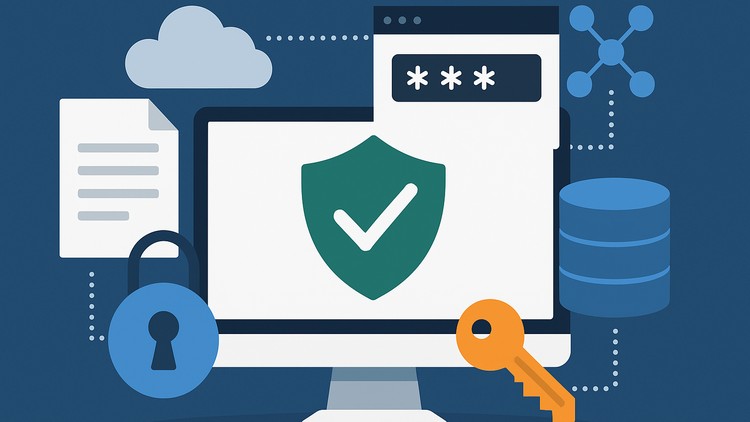
Step-by-step auditing of ISO 27001:2022 Annex A technical controls for endpoints, data, networks, and secure development
What you will learn
Audit ISO 27001:2022 Annex A technical controls step-by-step.
Evaluate policies, evidence, and configurations against ISO requirements.
Identify security gaps and create risk-based remediation plans.
Prepare audit reports and executive briefings for certification readiness.
Add-On Information:
Note➛ Make sure your 𝐔𝐝𝐞𝐦𝐲 cart has only this course you're going to enroll it now, Remove all other courses from the 𝐔𝐝𝐞𝐦𝐲 cart before Enrolling!
- Demystify the application of ISO 27001:2022’s technical control requirements in practical audit scenarios.
- Develop a robust understanding of how to assess the effectiveness of controls safeguarding endpoints, critical data, and network infrastructure.
- Gain proficiency in scrutinizing the security posture of development lifecycles and the controls embedded within them.
- Learn to interpret and validate the implementation evidence for a wide array of technical security measures, ensuring compliance and resilience.
- Master the art of identifying vulnerabilities and weaknesses in existing technical security implementations through targeted audit techniques.
- Acquire the skills to formulate actionable and prioritized recommendations for enhancing an organization’s technical security framework.
- Understand the nuances of evaluating cloud-based security controls within the context of ISO 27001:2022.
- Explore methods for auditing the security of communication channels and the integrity of information transfer.
- Learn to assess the efficacy of cryptographic controls and key management practices.
- Develop the capability to audit access control mechanisms and user privilege management for technical systems.
- Understand how to verify the implementation and operational effectiveness of physical security controls relevant to IT infrastructure.
- Gain insights into auditing incident management processes and the technical response capabilities.
- Learn to evaluate the security implications of business continuity and disaster recovery plans from a technical control perspective.
- Explore audit techniques for operational security, including logging, monitoring, and vulnerability management.
- PROS:
- Provides hands-on experience with modern technical security standards.
- Equips participants with immediately applicable auditing skills for a critical cybersecurity framework.
- Enhances an individual’s value in the cybersecurity and compliance job market.
- CONS:
- Requires a foundational understanding of IT security principles to fully benefit.
English
language